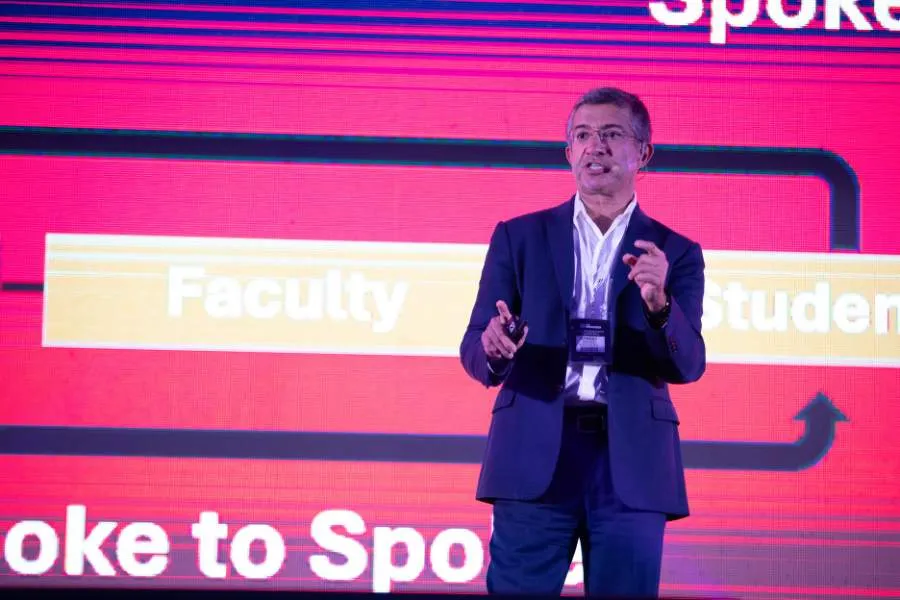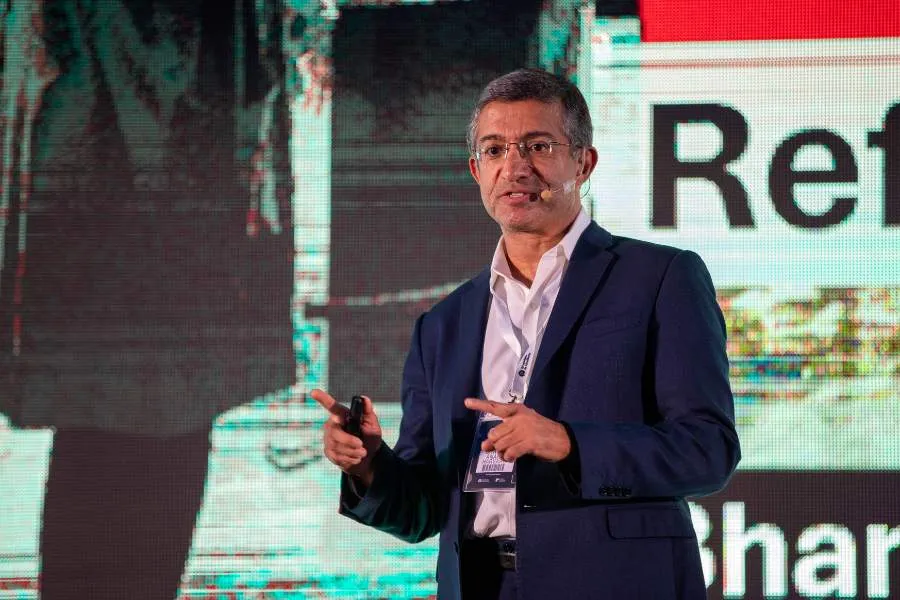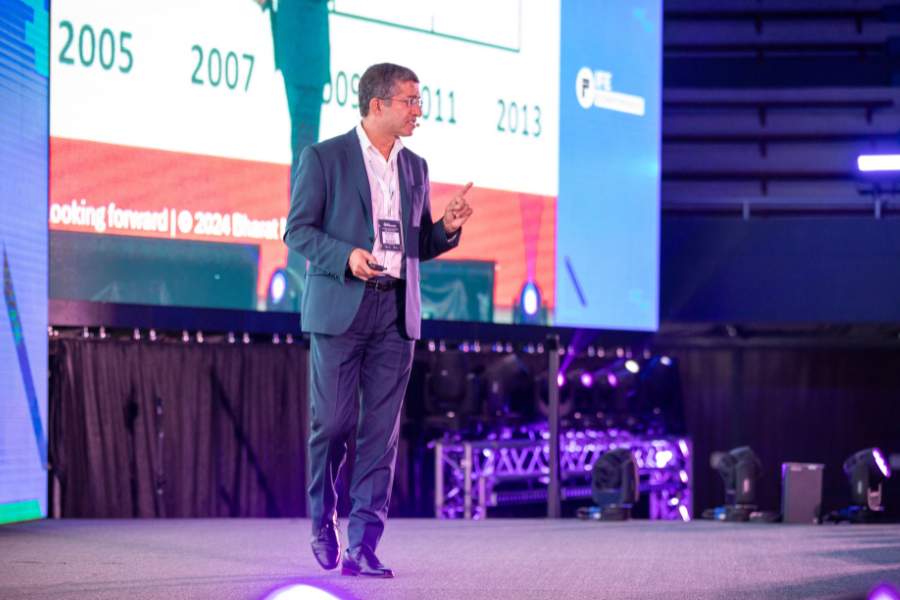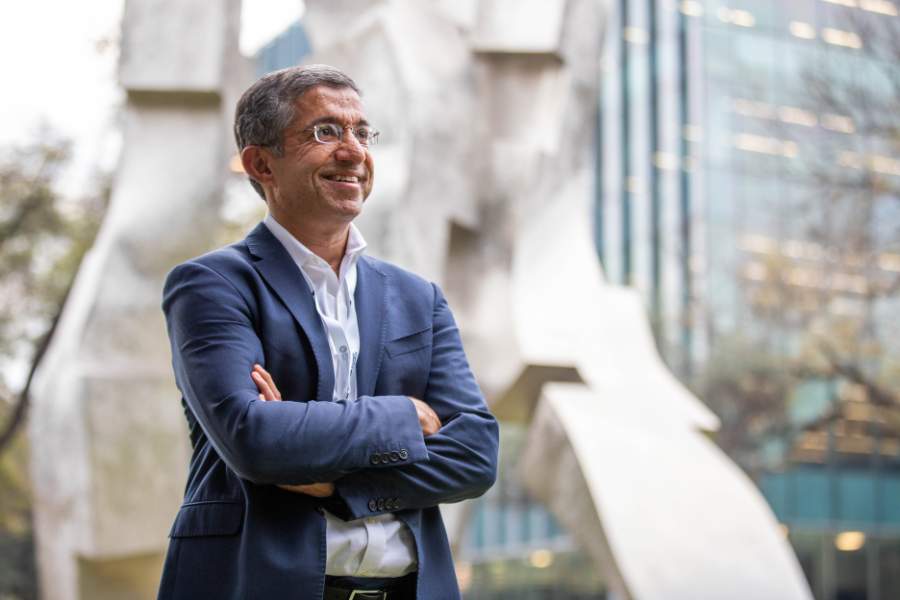The future of digital education depends on adaptation and collaboration.
Dr. Bharat Anand, Harvard’s Vice Provost for Advances in Learning, gave a keynote speech at Tec de Monterrey’s IFE Conference 2024.
Anand was talking about adapting to the interests and experiences of students -before and during education- and the collaboration that can occur between students themselves, as well as between academic institutions.
“We need to aim for an organizational change capable of evolving the landscape of digital education and attacking the problem of fragmentation,” he said.
In his talk, The Future of Learning: Reflections and Looking Ahead, Anand shared some of the lessons learned from how Harvard has handled online education.

Transforming education
Anand shared his insights and perspective on the direction in which online Higher Education models are headed in the coming years.
“The real power of online education does not lie in reaching a wider audience, but in the interaction and connections that can develop from this model.”
“This future depends on the potential of strategic university partnerships and their willingness to collaborate,” he said.
For example, there is no need for each university to have its own web platform; instead, users could benefit more from shared courses, he said.
He pointed out the variety of formats that are currently available for learning, such as certificates, short courses, credentials, and master classes.
“We must meet students where they are, not where we would like them to be,” Anand said, speaking of the need to pay attention to students’ interests to combine them with the learning that educators deem important.

He also mentioned the online courses that Harvard has implemented as introductory modules at the beginning of degree programs.
The so-called “entry-level courses” act as introductions to what may eventually become a full syllabus.
“These types of courses help us understand what the students will eventually study and allow us to introduce them to the university experience,” he added.
A new development
While the landscape of online courses, micro-certifications, and asynchronous learning seem to pose a completely new paradigm, Anand believes that we have already undergone similar changes.
For example, the displacement of the printed press in favor of the Internet is a phenomenon that dates back to the mid-20th century, not the beginning of this decade, the professor says.
“We have a misconception that the decline of print media is relatively recent but in reality, it can be traced back to 1945 with the emergence of media such as television,” he said.
“Also, it’s a misconception that the decline of print media profits was due to the emergence of digital media, as it was actually due to the decline of classified ads and their business model,” he added.
Using this example, the professor said that the new digital learning models are not a threat to the traditional system, but a point in its evolution instead.
“Technology alone can’t be a disruptor in education,” the academic said.
Bharat said digital learning models such as edX, from the MIT-Harvard partnership, have served as a learning experience on the importance of prioritizing student engagement over general reach.
“In the edX model, we learned that out of 35 million online learners, less than 5% completed the program and didn’t create a community bond with their peers,” he said.

Emergency education is not a guideline
Similarly, Dr. Anand finds that the experience during the pandemic and the need to implement an “emergency” model of online classes is not an accurate representation of an online learning model.
“It’s important to recognize that during COVID, both professors and institutions adapted using the resources they had, but this does not equate to a successful digital experience,” he said.
“Emergency education is in turn a sign of the conflicting perceptions that exist between professors, who said they had a negative experience, and students, who showed a greater acceptance of the model,” he added.
The expert explained that although emergency education can be a successful experience, it should not be used as a guideline for online education in the future.
Bharat said fragmentation continues among learning platforms, where each institution continues to provide its own supply without considering the real demand.
“In recent years, 40 million Americans started their college experience but didn’t get their degree,” the doctor said.
“The answer is not to force people back to the traditional model or to simply offer them the option of taking distance learning classes. We need to improve our online learning model based on these new needs,” he said.

Dr. Bharat Anand
Dr. Bharat Anand is a Harvard Business School professor who has been integral to the re-shaping of Harvard’s online programs.
Anand’s contributions include creating Harvard Business School’s first executive program on digital strategies for media companies and authoring “The Content Trap: A Strategist’s Guide to Digital Change.”
Recognized for his exceptional teaching, Anand has twice won the “best professor award” at Harvard Business School.
About the IFE Conference
The IFE Conference is the annual conference on Educational Innovation and the Future of Education organized by Tecnológico de Monterrey’s Institute for the Future of Education.
Formerly known as the International Conference on Educational Innovation, this year’s event takes its name from the institute.
Through talks from world experts and panel discussions, it features trends and practices that are transforming education around the world.
In this edition, the main topic is Artificial Intelligence in Education.
“The future of work is changing, and we have to change what we teach at university so that people are prepared,” said José Escamilla, Associate Director of the Institute for the Future of Education.
YOU MAY ALSO BE INTERESTED IN:





